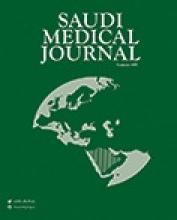1 AUGUST 2017 | No country in the world fully meets recommended standards for breastfeeding, according to a new report by UNICEF and WHO in collaboration with the Global Breastfeeding Collective, a new initiative to increase global breastfeeding rates.
Global Breastfeeding Collective
The Global Breastfeeding Scorecard, which evaluated 194 nations, found that only 40 per cent of children younger than six months are breastfed exclusively (given nothing but breastmilk) and only 23 countries have exclusive breastfeeding rates above 60 per cent.
Evidence shows that breastfeeding has cognitive and health benefits for both infants and their mothers. It is especially critical during the first six months of life, helping prevent diarrhoea and pneumonia, two major causes of death in infants. Mothers who breastfeed have a reduced risk of ovarian and breast cancer, two leading causes of death among women.
“Breastfeeding gives babies the best possible start in life,” said Dr Tedros Adhanom Ghebreyesus, Director-General of WHO. “Breastmilk works like a baby’s first vaccine, protecting infants from potentially deadly diseases and giving them all the nourishment they need to survive and thrive.”
The scorecard was released at the start of World Breastfeeding Week alongside a new analysis demonstrating that an annual investment of only US$4.70 per newborn is required to increase the global rate of exclusive breastfeeding among children under six months to 50 per cent by 2025.
Nurturing the Health and Wealth of Nations: The Investment Case for Breastfeeding, suggests that meeting this target could save the lives of 520,000 children under the age of five and potentially generate US$300 billion in economic gains over 10 years, as a result of reduced illness and health care costs and increased productivity.
“Breastfeeding is one of the most effective—and cost effective—investments nations can make in the health of their youngest members and the future health of their economies and societies,” said UNICEF Executive Director Anthony Lake. “By failing to invest in breastfeeding, we are failing mothers and their babies—and paying a double price: in lost lives and in lost opportunity.”
The investment case shows that in five of the world’s largest emerging economies—China, India, Indonesia, Mexico and Nigeria—the lack of investment in breastfeeding results in an estimated 236,000 child deaths per year and US$119 billion in economic losses.
Globally, investment in breastfeeding is far too low. Each year, governments in lower- and middle-income countries spend approximately US$250 million on breastfeeding promotion; and donors provide only an additional US$85 million.
Available from: http://www.who.int/mediacentre/news/releases/2017/lack-investment-breastfeeding/en/
- Copyright: © Saudi Medical Journal
This is an open-access article distributed under the terms of the Creative Commons Attribution-Noncommercial-Share Alike 3.0 Unported, which permits unrestricted use, distribution, and reproduction in any medium, provided the original work is properly cited.






